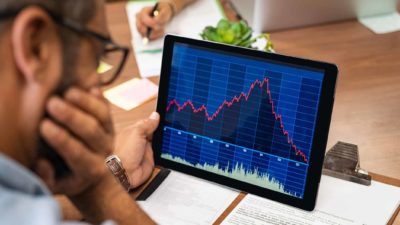The S&P/ASX 200 Index (Index:^AXJO) (ASX:XJO) made a very dramatic surge higher at the close after the federal government announced a record stimulus package to entice companies to keep their employees.
The top 200 index finished up a whopping 7% to a two-week high of 5,181 on Monday when it was trading modestly above breakeven in the morning.
We can thank ScoMo for the late burst of enthusiasm after the prime minister unveiled a new $130 billion job-keeper program that was far more generous than anyone imagined.
Biggest cash splash
The stimulus is a record for Australia and is more generous than those offered by the British and Canadian governments. Embattled Aussie companies will get $1,500 a fortnight to pass on to employees and casual staff who are on their books for at least 12 months.
This will significantly reduce the wages bills for the retail and hospitality industries, and could very well save thousands of jobs.
The important question for ASX investors is what does the stimulus bazooka mean their portfolios. It's very good news in my view.
Worst is behind us
I can't say if this will definitely mean we don't sink into a recession, but I believe it will make any recession far shallower and shorter-lived.
While I wouldn't say this a few hours ago, I think the worst of the COVID-19 market meltdown is behind us and that the ASX 200 found its bottom last Monday.
This doesn't mean we are out of the woods yet, but I think short-sellers will be aggressively paring their bearish positions and cashed-up investors will be moving more confidently back into the market.
Bank dividends looking much safer now
The new fiscal stimulus is a game changer, not only for retailers, shopping centre owners and casinos, but for other beaten down sectors like the banks.
I've more confidence that the big four – meaning Commonwealth Bank of Australia (ASX: CBA), Westpac Banking Corp (ASX: WBC), Australia and New Zealand Banking Group (ASX: ANZ) and National Australia Bank Ltd. (ASX: NAB) – can avoid making big dividend cuts.
This is because the Reserve Bank of Australia (RBA) is supporting the sector from behind with cheap liquidity while the government's job protection measures will help from the front.
Fears of a big rise in bad debts, which will crimp on the bottom lines of banks, have been alleviated.
Markets don't move in straight lines and we can expect much more bad news on the human toll from coronavirus, but for the first time since the crisis, I can see a hint at the end of the tunnel.








